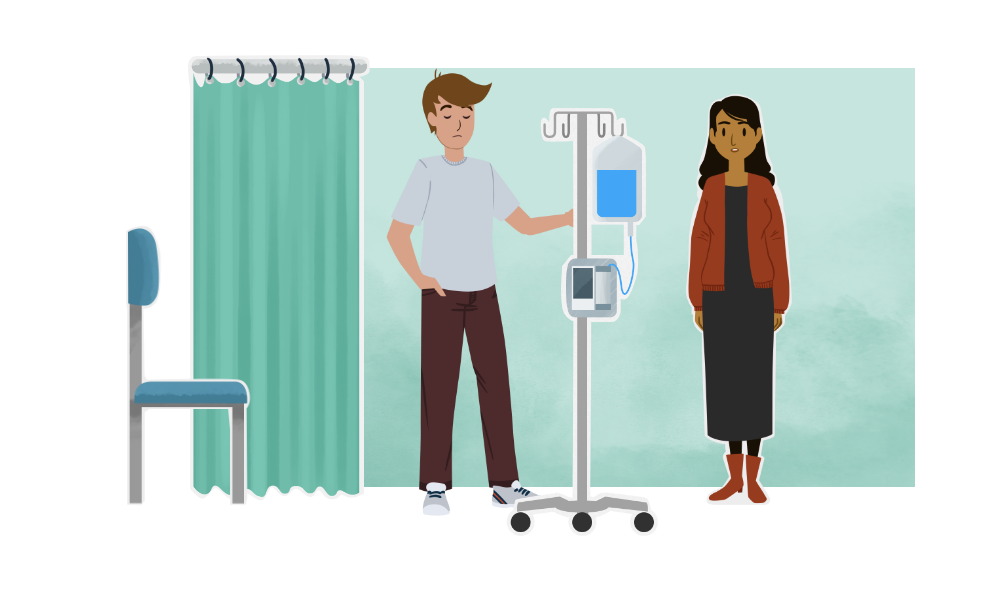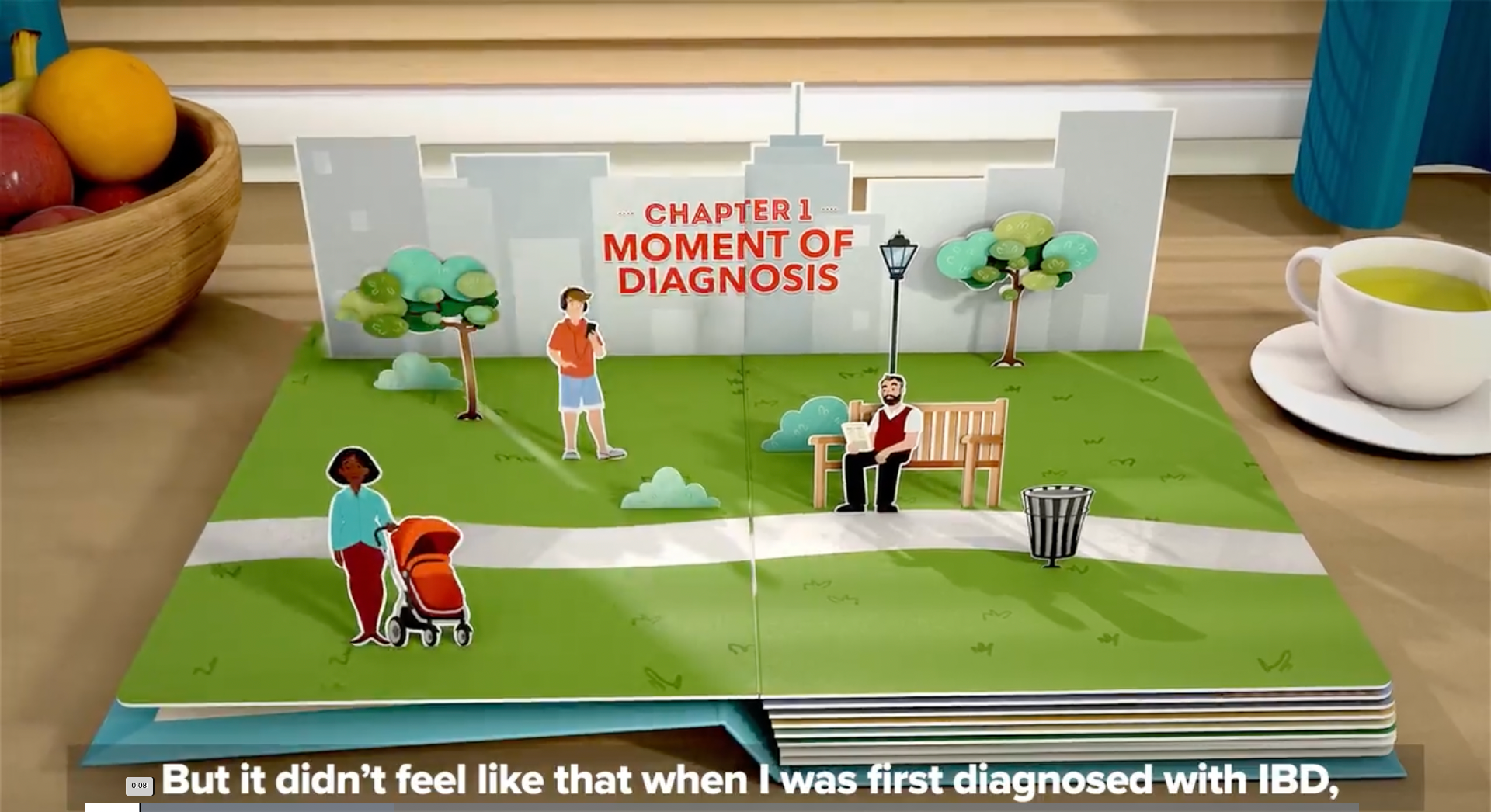Inflammatory Bowel Disease

Treating Inflammatory Bowel Disease (IBD) - The goal of treatment
Currently, there is no cure for Inflammatory Bowel Disease (IBD), however, there are various medications available today which can help you manage the condition.
The goal of medical treatment is to stop the inflammation that triggers signs and symptoms, and to avoid complications, in order to improve long-term prognosis. In the best cases, this may lead not only to short-term symptom relief but also to long-term remission.
The journey to achieving remission will be different for everyone. By staying on treatment and maintaining a healthy lifestyle, many people with IBD will see their symptoms improve, or perhaps even disappear completely.
Sometimes, however, surgical intervention is necessary. Psychological care and nutritional therapies can also help, along with smoking cessation in some cases of Crohn’s disease (CD).
Watch the video 'My IBD Journey: Mission: Remission', which explains the different types of remission. It provides advice on how you can work towards achieving remission, and the importance of staying on track with your prescribed treatment.
Available treatments
The kind of drug you are prescribed will depend on the severity of your disease, the type you have and how affected your colon is (in Ulcerative Colitis) or gastrointestinal tract is (in Crohn’s Disease). You may need to take medication for many years or the rest of your life. However, remember, by staying on treatment and maintaining a healthy lifestyle, many people with IBD will see their symptoms improve, or perhaps even disappear completely.
IBD is usually treated with one or more of the following types of prescription drugs that aim to reduce inflammation of the gut.
Research into IBD treatment options is still ongoing, and so it’s worth noting that there may be additional kinds of treatment under development to those detailed below.
Anti-inflammatory drugs
These reduce inflammation and are frequently the first treatment option in both CD and UC.
Immunosuppressive drugs
These work by suppressing the activity of the immune system in general. Some can be prescribed by your doctor when you have mild disease, others like biologics or small molecule drugs can only be prescribed when you have moderate to severe active disease.
Biologics
A special type of immunosuppressive drug that reduces inflammation by neutralising a specific protein made by the immune system. These proteins can be:
- Tumour necrosis factor (TNF), and interleukin 12 and 23 which are involved in sustaining an inflammation
- Integrins, which are involved in the process of getting inflammatory cells to the site of inflammation
Small molecule drugs
Another type of immunosuppressive drug that help control chemical messengers involved in your immune response.
When you are prescribed a treatment or treatments, you may also receive additional information from your doctor. You should also read any patient information leaflets that may accompany your medicine.
If medical treatment is not effective enough in controlling your disease or your disease is unresponsive to it, you may eventually need surgery to remove part of your bowel (in CD) or colon (in UC). However, even in the case of a severe episode, it is now often possible to control the disease satisfactorily by medication.
Don’t be afraid to speak to your doctor if you have any questions about your treatment or the options available to you.


My IBD Journey offers guidance on how to plan and manage the range of symptoms you may encounter as an individual living with Inflammatory Bowel Disease (IBD), allowing you to live your life to the fullest.
